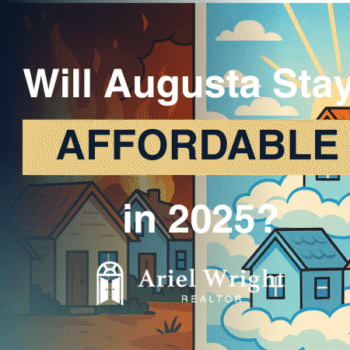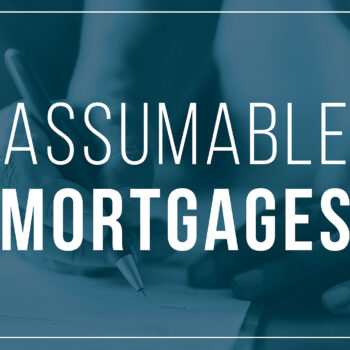Hurricane Helene Aftermath in Augusta, GA | Homeowner Insurance & Real Estate Tips
When Hurricane Helene passed through Augusta, GA, it left more than just flooded yards and scattered debris — it left many homeowners wondering where to even begin. Whether you’re new to the area or have weathered Southern storms before, this one felt different.
From rising insurance concerns to patchwork claims processes, the aftermath reminded us just how unprepared many systems still are for natural disasters. That’s why I want to share what I’ve seen on the ground — and how to protect your home, your finances, and your peace of mind moving forward.
The Reality: 13 Adjusters, Delayed Claims & Disappearing Support
In the wake of Hurricane Helene, insurance companies flooded the area with adjusters — but not all of them stayed. As wildfires hit California, the more experienced adjusters were pulled away, leaving many local homeowners to restart the process with new faces… over and over again. Some had to work with up to 13 different adjusters on the same claim.
This constant turnover not only delayed repairs, but left many people without clear answers or consistent representation
What You Can Do If You’re Stuck in the Insurance Process
If you’re still waiting on a claim to be resolved or feel like you’re being lowballed, you’re not alone — and you’re not powerless.
Here’s what I recommend:
- Document everything — dated photos, videos, repair estimates, and written communication
- Get three quotes from licensed contractors to support your claim’s value
- Talk to a local real estate attorney if you’re getting the runaround. They can help you build a case that ensures you’re paid fairly
This is especially important if the damage could impact your property value down the line.
Understanding Your Policy: What’s Actually Covered (and What’s Not)
One of the biggest takeaways from Hurricane Helene? Most people had no idea what their homeowners insurance really covers — or doesn’t.
Here’s what’s usually included:
- Dwelling Coverage – Your home’s physical structure
- Personal Property – Typically 50–75% of dwelling value
- Dwelling Extensions – Around 10% (porches, fences, patios, pools)
And here’s what often isn’t covered unless you’ve added it on:
- Flood damage – Requires a separate flood policy
- Water intrusion – Not covered under standard plans
- Wind and hail – Must be added separately
- Roof matching and inflation coverage – Also separate add-ons
- Pools – May require individual coverage
Tip: Reach out to your insurance agent to clarify what’s included — before the next storm rolls through. Pro tip: Three claims on your insurance can get you dropped…
Watch Out for Storm Chasers
After every major storm, unlicensed contractors and door-to-door salespeople (aka “storm chasers”) show up promising quick repairs.
Be cautious.
Always:
- Ask for licenses and insurance
- Get multiple bids
- Read contracts carefully before signing
If it feels too good to be true — it probably is.
Should You Rebuild or Demolish? Let’s Break Down the Math.
One of the hardest — and most emotional — questions homeowners face after a storm like Hurricane Helene is: Should I repair the damage, or start over completely?
Here’s a simple way to think it through:
If the cost to repair exceeds 50–60% of your home’s current market value, rebuilding might make more sense — especially if there’s major structural or foundational damage.
Real-Life Example:
Say your home is currently worth $300,000, and your repair estimate comes in around $175,000. That’s nearly 60% of the home’s value — and you’d still be left with an older home, not a new build. At that point, rebuilding might be the smarter long-term investment.
What If You Still Owe on Your Mortgage?
Here’s where the math really matters.
Let’s say you owe $260,000 on your mortgage. If your home is declared a total loss and your insurance payout covers that amount (or close to it), the mortgage gets paid off first.
That means:
- You won’t get the full $300K — you’ll only get what’s left after your loan is paid
- You’re likely looking at $30K–$40K in remaining funds (depending on insurance and lender fees)
- That remaining balance becomes your down payment toward a construction loan or new home loan
So yes — in most cases, you’d still need to take out a loan to rebuild. But the difference is, you’d be starting fresh: new structure, better materials, and potentially higher equity if you build smart.
What to Keep in Mind:
- Insurance doesn’t always cover full replacement cost — know your policy
- You’ll need a contractor or structural engineer to confirm damage
- Zoning laws, permitting, and timeframes all factor in
- And your borrowing power will depend on your credit, income, and how much equity you retain after payoff
You Don’t Have to Figure This Out Alone.
This process can be overwhelming, especially when you’re juggling repairs, emotions, and financial pressure all at once. If you need referrals for builders, lenders, appraisers, or real estate attorneys — I’ve got trusted local contacts who can help.
Download my free Vendor Guide on my website for a curated list of professionals in Augusta and the CSRA. I’ll also link it in the comments so you can grab it easily when you’re ready.
Why This Matters for Homeowners and Sellers
If you’re thinking about selling your home after storm damage, or you’re under contract and unsure how this affects the appraisal or inspection — let’s talk. A storm doesn’t have to derail your plans. The right strategy can help you preserve — or even increase — your home’s value.
As a local Realtor, I’m here to help you navigate every part of this process — from repairs to real estate transitions.
Closing Thoughts
Hurricane Helene reminded us that preparedness means more than having flashlights and water — it means knowing your coverage, having a plan, and building relationships with people you trust before the storm ever hits.
If you’re navigating repairs, claims, or big decisions about your home, I’m here for you.
Doors are always opening — let’s walk through this one together.
— Ariel



